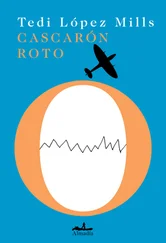Mark Mills - Amagansett
Здесь есть возможность читать онлайн «Mark Mills - Amagansett» весь текст электронной книги совершенно бесплатно (целиком полную версию без сокращений). В некоторых случаях можно слушать аудио, скачать через торрент в формате fb2 и присутствует краткое содержание. Жанр: Старинная литература, на русском языке. Описание произведения, (предисловие) а так же отзывы посетителей доступны на портале библиотеки ЛибКат.
- Название:Amagansett
- Автор:
- Жанр:
- Год:неизвестен
- ISBN:нет данных
- Рейтинг книги:5 / 5. Голосов: 1
-
Избранное:Добавить в избранное
- Отзывы:
-
Ваша оценка:
- 100
- 1
- 2
- 3
- 4
- 5
Amagansett: краткое содержание, описание и аннотация
Предлагаем к чтению аннотацию, описание, краткое содержание или предисловие (зависит от того, что написал сам автор книги «Amagansett»). Если вы не нашли необходимую информацию о книге — напишите в комментариях, мы постараемся отыскать её.
Amagansett — читать онлайн бесплатно полную книгу (весь текст) целиком
Ниже представлен текст книги, разбитый по страницам. Система сохранения места последней прочитанной страницы, позволяет с удобством читать онлайн бесплатно книгу «Amagansett», без необходимости каждый раз заново искать на чём Вы остановились. Поставьте закладку, и сможете в любой момент перейти на страницу, на которой закончили чтение.
Интервал:
Закладка:
A few unforeseen developments aside, his plan was on course, moving ahead, narrowing down to the fine point. The policeman, Hollis, had taken the bait, and seemed intent on keeping it to himself. That was good, essential even. Whether he had judged Manfred Wallace correctly remained to be seen. He’d know soon enough.
He glanced at his watch, calculating the hours left to kill. He wasn’t tired, the prospect of the looming conflict sharpening his mind, blowing away the clouds of light-headed exhaustion.
He veered away from the water’s edge, up over the frontal dune into Beachampton, the grid of cheap new summer homes that lay beyond. The development was spreading at an alarming rate. Skeletal structures loomed around him, the building stock destined to flesh out their timber frames heaped up in piles. A bulldozer stood abandoned at the end of the narrow swathe it had punched through the dunes to the east—a new road yet to be named—reshaping in a few hours a landscape sculpted over centuries by the wind and the ocean.
Had the bulldozer completed its task, or were its instructions to keep right on going? If so, it should be showing up at his place somewhere towards the end of the week, huffing and puffing and coughing black smoke, its current course destined to take it right through the middle of the barn, ever onwards across Napeague, little shingle-clad homes mushrooming in its wake, all the way to Montauk Point.
If it was a vision of the future, then thankfully it was a future he wouldn’t live long enough to witness.
He kicked the Beachampton sand from his heels, heading west on Bluff Road past the big houses with their commanding views over the Glades towards the ocean. Nearing the Kemps’ house, he glanced up at the roof, fearful that Rollo might be watching from the ‘widow’s walk’—the little scuttlehole beside the chimney from which the women of the house once scanned the ocean for their husbands’ safe return. It could only be accessed via Rollo’s attic bedroom, and Rollo had always spent an inordinate amount of time peering down on the world from his crow’s nest, as he liked to think of it. Fortunately, he wasn’t there, and Conrad turned in to the leafy, tenebrous cool of Miankoma Lane.
The doctor from Manhattan and his family were in residence. The landing light was on and there was a car parked in back of the house near the barn. He noticed that they’d removed the old hitching-post that had always stood out front. The wooden go-kart lying abandoned near the front porch had been Conrad’s, hammered together from fish crates around the time of his tenth birthday; and while he felt a slight pang of possessiveness on seeing it there, he was pleased it was being used.
He trod lightly up the driveway, round to the back of the house. The barn was as good a place as any to hole up for the night. Maybe he was being too cautious, but he somehow doubted it. They would have to take action against him. And soon.
He noted, a little sadly, that the garden had changed almost beyond recognition. There was a carpet of lawn where the fruit and vegetable patches had once stood—their stepmother’s pride and joy, where she’d spent so many of her waking hours, growing pole beans and peas, carrots and cabbages, cucumbers, marrows and beets. She planted pumpkins around the small stand of corn so that the sticky vines would deter the raccoons, she built strawberry frames sheathed in condemned Promised Land bunker net, and her back grew strong from hauling up buckets of water from the well.
As young boys they’d never understood her obsession with cultivation. Only later, when they realized she was unable to bear children, did her endless planting and tending and reaping make any sense.
If she was upset by the barrenness she carried inside her, she never allowed it to interfere with her devotions to them. They, on the other hand, were less than fair in their dealings with her, certainly at the beginning, their young minds unable to grasp the idea—sprung on them one evening by their father—that their teacher was to become their mother. Miss Elliott, with her long wavy hair and her sticks of chalk and her constant talk of Regents exams and passing grades and the Palmer Method of handwriting? It just didn’t make any sense.
Miss Elliott was a ‘peach’, an upstater, who boarded with a local family during school terms. She wasn’t around a whole lot, and their father, it seemed to them, did nothing but fish from dawn till dark. How had they even met? The critical encounter, it soon emerged, had taken place at a dance held at Miankoma Hall by the Ladies’ Society of Busy Workers. They knew their father was good on his feet, they’d seen him dance in the barroom at Valentin Aguirre’s in New York, surprisingly nimble for such a big man, proudly presenting the steps of their region to the other Basques—the kaskarotak, the volontak and the maskerada. And now it seemed he had won Miss Elliott’s heart with his glides and his shuffles, his spins and his leaps.
Their housekeeper, Miss Smarden, promptly resigned in disgust—the first and only sign that she’d been carrying a torch all of her own for their father. They’d become so accustomed to the strict regime at home that they thought Miss Elliott must be joking when she insisted they invite their friends round to the house whenever they wanted. She rigged a rope from the tulip tree out back and the grass beneath was soon worn away to dirt by small feet. She accompanied them on the great spring and fall cattle drives along the ocean beach to and from the sweeping pastures of Montauk. On winter weekends she drove them to watch the gaff-rigged ice-boats rattling across Mecox Bay at improbable speeds, and she took them by ferry across Long Island Sound to the amusement park in New London. It was all too good to be true, and they suspected that it was just a ploy to win their hearts and impress their father, that it wouldn’t last.
She proved them wrong over and over again. With time they learned to return her hugs and other displays of affection, and they marveled at her ability to treat them no differently from the other kids once they’d crossed the threshold of the little white schoolhouse each morning. She drove them hard, Antton less than some because of his difficulties, Conrad far harder than most, slipping him extra books to read after school. She did this, she said, because she believed he had a gift.
To Conrad’s mind it was a thankless gift if it kept him from the new fishing shanty their father had built at the bottom end of Atlantic Avenue. Raised a few feet above the shifting sands on locust posts, it was little more than a long wooden box with a shingle roof and a pot-bellied stove. But to Conrad and Antton it was a palace, a place of wonderment, a symbol of their father’s advancement in the world.
Together with Billy, they would hurry there as soon as they’d wolfed down their supper, Maude shouting after them that exertion on a full stomach was a sure way to an early grave. If they were lucky they’d arrive breathless before the dory had come ashore, and they’d watch it negotiate the thundering surf, their father and Sam bent at the oars, moving in unison. In summer their father and Sam hauled seine and set bluefish nets way out beyond the bar, two or three miles offshore, and they would help lug the fish from the boat to the shanty, threading beach grass through the gills, their fingers too tender still for the sharp plates. They learned to dress and pack the catch, their clothes crusted with scales, the boards of the shanty slick with gurry beneath their feet. The big treat was to be taken a little way out beyond the surf—squeezed in together in the bow, white knuckles on the gunwales—and go drop-lining for fluke.
Held back in school, Antton was fifteen years old when Conrad joined him in the eighth grade. At the end of the school year Antton failed his Regents for the second time, but with his sixteenth birthday falling in August, he had seen through his obligations to the law. The same week that Conrad started at East Hampton High School, Antton joined their father on the beach, set-netting for the last of the bluefish. Times were tough—the fish had been down all season—and they worked long hours, longer still when the cod appeared around Thanksgiving.
Читать дальшеИнтервал:
Закладка:
Похожие книги на «Amagansett»
Представляем Вашему вниманию похожие книги на «Amagansett» списком для выбора. Мы отобрали схожую по названию и смыслу литературу в надежде предоставить читателям больше вариантов отыскать новые, интересные, ещё непрочитанные произведения.
Обсуждение, отзывы о книге «Amagansett» и просто собственные мнения читателей. Оставьте ваши комментарии, напишите, что Вы думаете о произведении, его смысле или главных героях. Укажите что конкретно понравилось, а что нет, и почему Вы так считаете.











